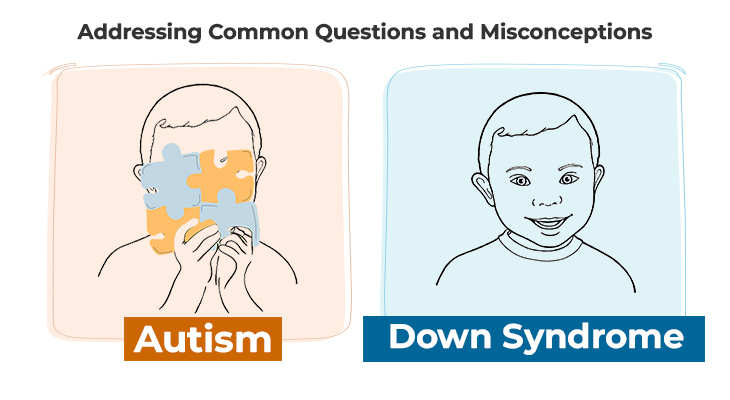
Vitamin B9, also known as folate or folic acid (when used in supplements and fortified foods), is a water-soluble vitamin that is part of the B-vitamin family. It plays a crucial role in several important bodily functions, including:
- Prevention of Birth Defects: One of the most well-known roles of folate is in preventing neural tube defects (such as spina bifida) in developing fetuses. This is why folic acid supplementation is often recommended for women who are pregnant or planning to become pregnant.
- DNA Synthesis and Repair: Folate is essential for the synthesis, repair, and methylation of DNA, which is vital for cell division and growth. Methylation is a critical component as it is integral in supporting many bodily functions.
- Brain Function and Mental Health: Folate is important for proper brain function and plays a significant role in mental and emotional health. Adequate levels of folate are particularly important during periods of rapid growth, such as during pregnancy and fetal development.
Importance of Folate in Brain Function
Folate plays a vital role in brain health. It is involved in the synthesis of neurotransmitters, which are chemicals that transmit signals in the brain. Folate is also crucial for DNA synthesis and repair, processes that are particularly important during periods of rapid brain growth in early childhood. A deficiency in folate can disrupt these processes, leading to impaired brain function. The inability to maintain adequate folate levels in the brain can result in cognitive impairment, behavioral issues, and other neurological problems. Therefore, maintaining sufficient folate levels is essential for proper brain function and development.
The other important piece to this is folate transport into the brain and into the Cerebrospinal Fluid (CSF). Having enough folate in the human system (in the blood that is), does not ensure that it is transported and delivered efficiently into the cells that need it – particularly brain cells and cells in the CSF. Let’s examine this closer.
Folate is transported into the brain through a specialized process involving specific transport mechanisms. Here’s how it works:
- Transport Across the Blood-Brain Barrier (BBB)
- Blood-Brain Barrier: The BBB is a selective barrier that protects the brain from harmful substances while allowing essential nutrients to pass through. Folate must cross this barrier to enter the brain.
- Folate Receptors: Folate is primarily transported across the BBB via folate receptors, particularly the folate receptor alpha (FRα). These receptors are present on the endothelial cells of the BBB.
- Folate-Binding Protein (FBP): Folate binds to these receptors, and the folate-receptor complex is then internalized by the endothelial cells through a process called receptor-mediated endocytosis.
- Transport Mechanisms: Once inside the endothelial cells, folate is transported to the brain’s interstitial fluid. This process allows folate to cross the BBB and enter the brain tissue.
- Choroid Plexus Involvement
- The choroid plexus, a structure in the brain responsible for producing cerebrospinal fluid (CSF), also plays a role in folate transport. The choroid plexus contains a high concentration of folate receptors and transport proteins.
- Folate is actively transported from the blood into the CSF via the choroid plexus, ensuring that adequate levels of folate are maintained in the brain.
- Transport Within the Brain
- Once folate has crossed the BBB, it is distributed to various regions of the brain where it participates in critical processes like DNA synthesis, neurotransmitter production, and the methylation cycle.
- Forms of Folate in the Brain
- In the brain, folate is often converted to its active form, 5-methyltetrahydrofolate (5-MTHF), which is used in various cellular processes.
Importance of Folate Transport
- Proper folate transport is crucial for maintaining cognitive function, mental health, and preventing neurodevelopmental disorders. Deficiencies in folate transport can lead to neurological issues and have been linked to conditions like autism, depression, and cognitive decline.
As mentioned in the above, hindered folate transport into the brain may lead to numerous neurological/neuropsychiatric disorders. But what can impede proper folate transport? What are some of the root causes for this?
Impediments to folate transport can be caused by various factors, including genetic mutations, medical conditions, and external influences. These impediments can lead to reduced levels of folate in the brain, which may have significant consequences for neurological health. Listed below are some of the main causes of hindered folate transport:
- Genetic Mutations
- Mutations in Folate Receptor Genes (e.g., FOLR1): Mutations in the FOLR1 gene, which codes for the folate receptor alpha (FRα), can reduce the receptor’s ability to bind and transport folate across the blood-brain barrier. This condition is rare but can lead to severe neurological disorders such as cerebral folate deficiency (CFD) syndrome.
- MTHFR Gene Mutation: The methylenetetrahydrofolate reductase (MTHFR) gene is responsible for converting folate into its active form, 5-methyltetrahydrofolate (5-MTHF). Mutations in the MTHFR gene can reduce the efficiency of this conversion, leading to lower active folate levels in the brain.
- Folate Receptor Autoantibodies:
- Folate receptor autoantibodies are immune system proteins (antibodies) that mistakenly target and bind to folate receptors, specifically the folate receptor alpha (FRα), which is responsible for transporting folate into cells, including those in the brain. These autoantibodies can interfere with the normal function of the folate receptors, leading to reduced folate transport and potentially causing a variety of health issues.
- Types of Folate Receptor Autoantibodies
- Blocking Autoantibodies:
- These autoantibodies directly bind to the folate receptor alpha in a way that blocks folate from attaching to the receptor. This prevents the receptor from capturing and transporting folate into the cells, leading to reduced folate uptake.
- Binding Autoantibodies:
- These autoantibodies bind to the folate receptor without necessarily blocking the attachment of folate but may still interfere with the receptor’s function, either by altering the receptor’s structure or by affecting its internalization and transport processes.
- Blocking Autoantibodies:
- Mechanism of Action
- When folate receptor autoantibodies are present:
- Reduced Folate Transport: The antibodies prevent folate from being efficiently transported across the blood-brain barrier into the brain, leading to decreased folate levels in the cerebrospinal fluid (CSF).
- Impaired Folate Function: Since folate is essential for critical brain functions such as DNA synthesis, repair, and neurotransmitter production, impaired folate transport can lead to various neurological and developmental issues.
- When folate receptor autoantibodies are present:
- Types of Folate Receptor Autoantibodies
- Folate receptor autoantibodies are immune system proteins (antibodies) that mistakenly target and bind to folate receptors, specifically the folate receptor alpha (FRα), which is responsible for transporting folate into cells, including those in the brain. These autoantibodies can interfere with the normal function of the folate receptors, leading to reduced folate transport and potentially causing a variety of health issues.
- Nutritional Deficiencies
- Low Dietary Folate Intake: Insufficient folate in the diet can lead to reduced levels in the bloodstream, which in turn affects the amount of folate available for transport into the brain.
- Vitamin B12 Deficiency: Vitamin B12 is necessary for the proper functioning of folate metabolism. A deficiency in B12 can cause secondary folate deficiency, impacting its transport to the brain.
- Drug Interference
- Certain Medications: Some drugs, such as anticonvulsants (e.g., phenytoin), methotrexate, and sulfasalazine, can interfere with folate metabolism or reduce its absorption, leading to lower folate levels and potential transport issues.
- Alcohol: Chronic alcohol consumption can impair folate absorption in the gut and affect its metabolism, leading to deficiencies that may impede transport to the brain.
- Aging
- Age-Related Decline: As people age, there may be a natural decline in the efficiency of folate transport mechanisms, contributing to lower folate levels in the brain. This decline has been associated with cognitive decline and an increased risk of neurodegenerative diseases.
Consequences of Impeded Folate Transport
Impediments to folate transport can result in neurological issues, including developmental delays, autism spectrum disorders, cognitive impairment, mood disorders, and increased susceptibility to neurodegenerative diseases. Early diagnosis and treatment are crucial to managing these conditions.
Managing Possible Folate Deficiency
Dietary Modifications and Supplementation
Diet plays a significant role in managing folate deficiency. Ensuring a diet rich in natural folate sources, such as leafy greens, legumes, and fortified cereals, can help mitigate symptoms. However, dietary intake alone may sometimes be insufficient for those with impaired folate transport mechanisms. Therefore, supplementation with folinic acid or other folate forms is usually necessary. Additional supplements like vitamins B6 and B12, which work synergistically with folate in metabolic pathways, may also be recommended. Tailoring a specific dietary plan that addresses individual nutritional needs is crucial. A registered dietitian can provide personalized guidance to optimize dietary intake and supplementation, enhancing overall treatment efficacy.
Folinic Acid (Leucovorin) Therapy
Folinic acid, also known as Leucovorin, is a cornerstone in the treatment for those that have folate receptor autoantibodies. Folate receptor autoantibodies may be screened with the use of the FRAT® test (www.fratnow.com). Unlike folic acid, folinic acid can bypass certain metabolic blocks and directly replenish folate levels in the cerebrospinal fluid (CSF). This is particularly beneficial for individuals with folate receptor autoantibodies, as they often have impaired folate transport or metabolism. Administered orally or through injections, folinic acid helps restore normal neurological function and development. Clinical studies have shown significant improvements in symptoms such as motor coordination, speech, and cognitive abilities with this therapy. Early and consistent treatment with folinic acid can lead to better long-term outcomes, making it a vital intervention for managing folate receptor autoantibodies.
The field of examining folate deficiency and corresponding treatment is continually evolving, with emerging therapies and ongoing research offering hope for more effective interventions. Scientists are exploring new drugs that can enhance folate transport into the brain or modulate immune responses to reduce the impact of autoantibodies. Gene therapy is another promising area, aiming to correct genetic mutations that cause folate deficiency. Clinical trials are underway to assess the efficacy of these innovative treatments. Additionally, research is focused on identifying biomarkers for earlier diagnosis and better monitoring of treatment responses. As our understanding of folate deficiency increases, these advancements could lead to more personalized and effective treatment strategies, significantly improving the quality of life for affected individuals.
Impact of Early Diagnosis and Treatment
The importance of early diagnosis and intervention in folate deficiency cannot be overstated. Early identification allows for timely initiation of treatment, such as folinic acid (Leucovorin) therapy, which can dramatically improve outcomes. Children who receive treatment early often experience significant improvements in motor skills, cognitive function, and overall development. Early treatment can also help manage behavioral issues and provide for optimal improvement. The window of opportunity for the most effective intervention is typically in early childhood, before irreversible neurological damage occurs. Thus, early diagnosis and prompt treatment are fundamental in altering the disease trajectory and enhancing the quality of life for affected individuals.




